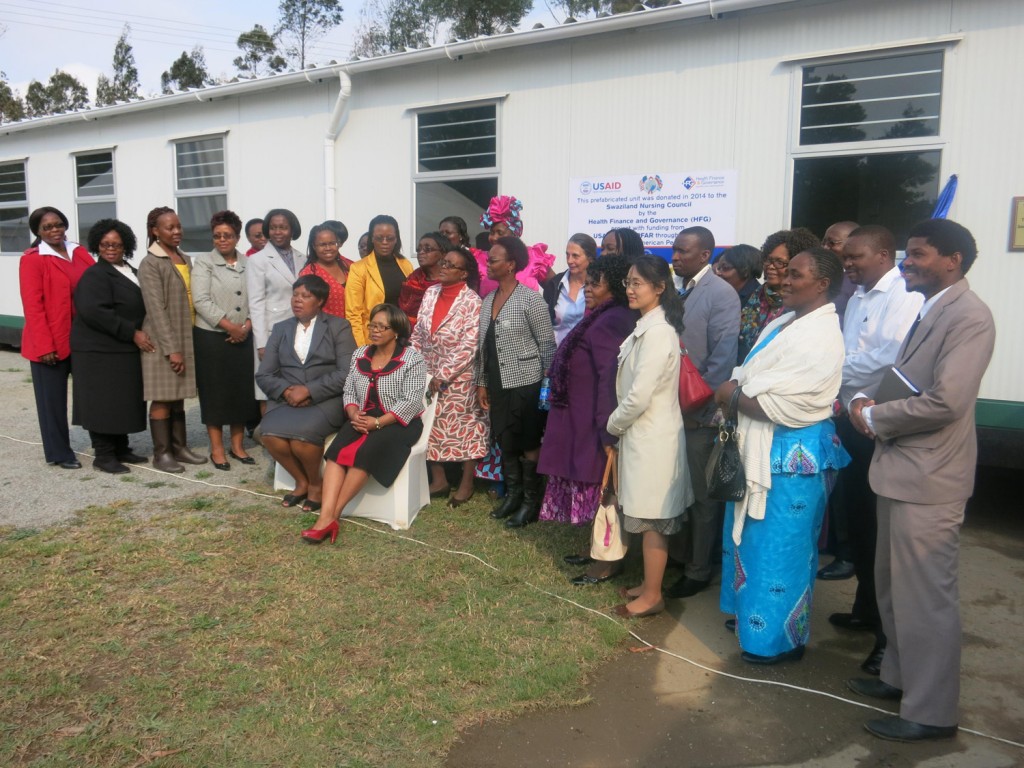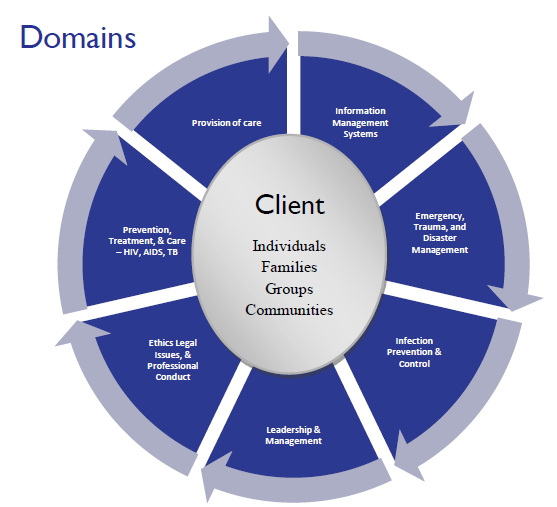Swaziland: Entry-to-Practice Competencies for Nurses to Improve HIV, TB Services
Categories: Announcements, HIV/AIDS, Home Page Map
With the world’s highest prevalence of HIV (26 percent) and TB/HIV co-infection (80 percent of tuberculosis patients have HIV), Swaziland has a critical need for a well-trained and sustainable workforce of medical professionals.
Swaziland’s health problems are aggravated by the lack of human resources – doctors, nurses, midwives – in its health system, with many Swazi doctors having left the country for better working conditions abroad. This challenge has created an opportunity for Swazi nurses to take a more active role in leading improvements in the country’s health system.
The Swaziland Nursing Council (SNC) is responsible for ensuring the quality of the country’s nursing workforce. The Council defines licensure requirements, works with the Ministry of Health to uphold practice standards, defines the competencies of nursing cadres, and ensures that nursing education meets the service delivery demands of the health sector. Therefore, strengthening the SNC’s regulatory oversight has a direct impact on the quality of health services, including HIV and TB services.
Developing Entry-to-Practice Competencies
To enhance the SNC’s regulatory capacity, HFG has supported the organization to develop entry-to-practice competencies for nurses and midwives. Nursing competencies outline the combination of knowledge, skills, attitudes and judgments required for nursing practice. Working with the Canadian Association of Schools of Nursing (CASN), HFG and SNC hosted two stakeholder workshops. Technical working groups composed of educators from the country’s nursing schools and other leaders of the Swazi nursing community worked to develop competencies in the areas of general nursing, midwifery, community health, and community mental health. While nursing competencies are generally high-level documents that don’t focus on specific diseases, in this case it was decided that given the country’s unique disease burden, it was appropriate to incorporate a separate domain dedicated to the prevention, treatment and care of HIV, AIDS, TB and Drug-Resistant TB. As such, specific domains were added to the general nursing competencies.
“We are optimistic that the competencies will go a long way in making sure that we have a competency-based curriculum that takes into consideration of HIV, AIDS and TB. The competencies will then inform the entry-to-practice examinations, which will be conducted by the Swaziland Nursing Council. Already, the competencies have attracted some recognition from other stakeholders who are now helping the training institutions to review their curricula to include HIV, AIDS and TB,” said Ms. Glory Msibi, Swaziland Nursing Council Registrar.
By strengthening the capacity of both the SNC to regulate the nursing profession and of nursing schools to train nurses using a curriculum which incorporates both international best practices as well as the local context, the new competencies help Swaziland fill its gap in HIV/TB care.
The competencies have both long and short term impacts on Swaziland’s health system. While addressing the country’s lack of health workers and strengthening the SNC’s regulatory capacity in the long term, the competencies will also bolster Swazi nurses’ capacity to provide HIV care and treatment services in the short term. Several of the country’s nursing schools have already contacted the HFG project to request the finalized competencies to update their curricula for training new nurses.
To further extend the impact of this work, the HFG team is creating a document describing the competency development process in detail. This guide will be an important resource for other countries planning to do similar work. The HFG team is in the process of disseminating the final competencies to
Swaziland’s nursing community, and expects the
process to be completed by summer.





